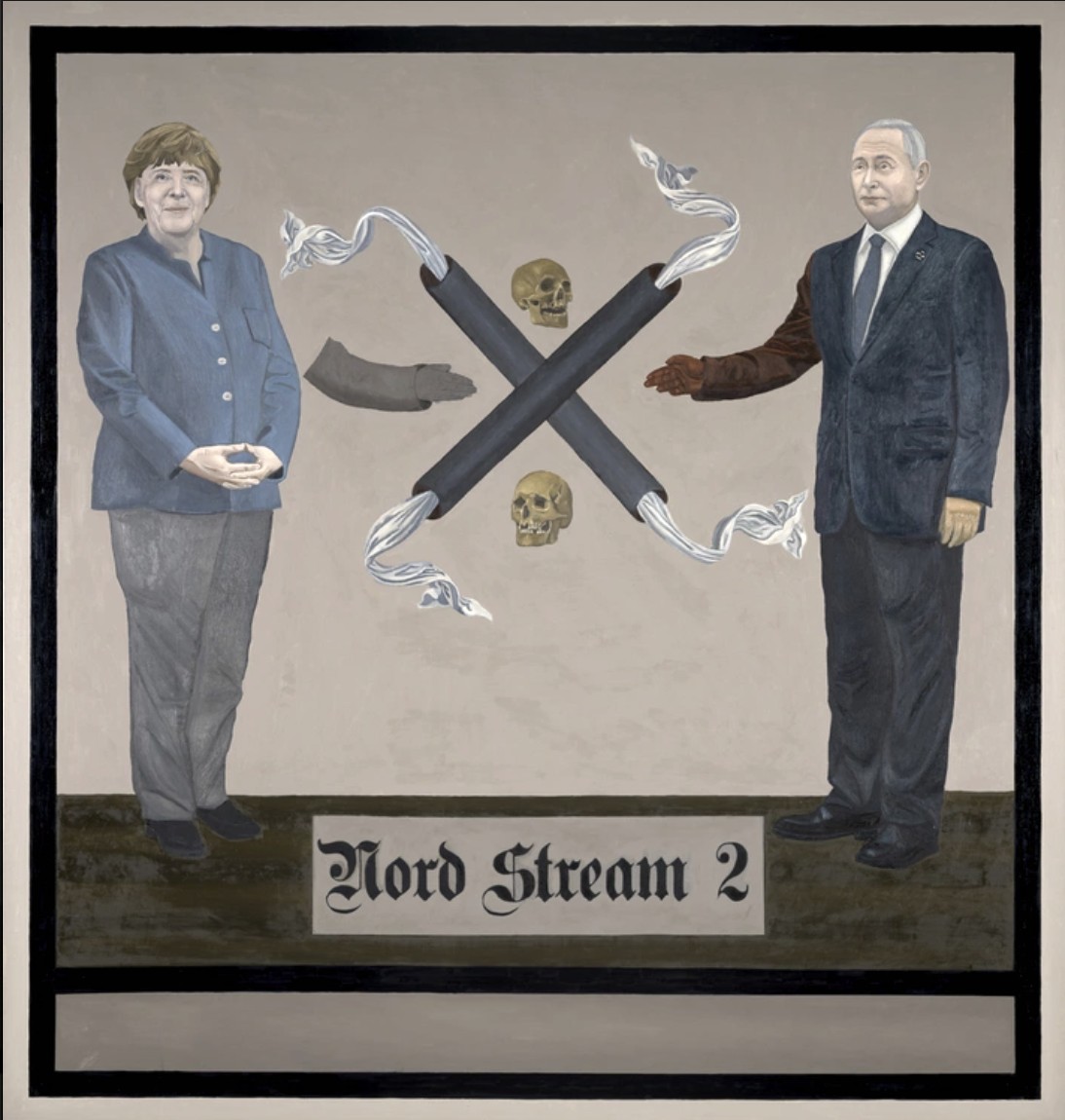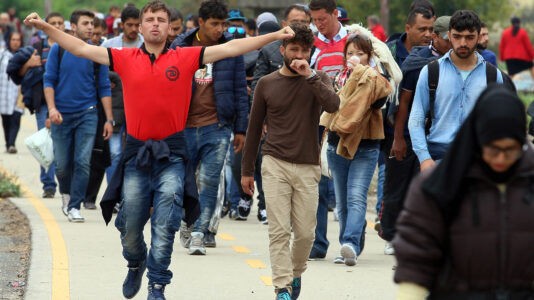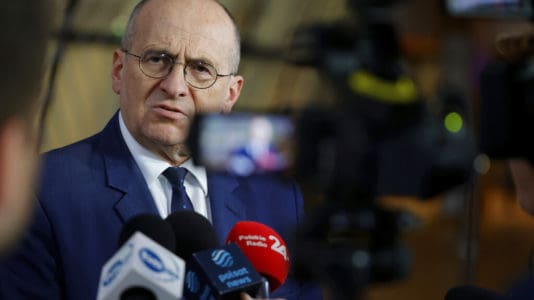The exhibition “Polonia Uncensored” showcases a series of original paintings depicting the crimes of the Soviets and Germans during the Second World War, as well as contemporary threats.
Ignacy Czwartos originally won an open competition to display these works at the Polish Pavilion in Venice, but the decision was later annulled by the former minister of culture from the left-liberal government, Bartłomiej Sienkiewicz. Despite not being part of the official Biennale program, the exhibition did end up being displayed in Venice.
The decision to present his works was driven by the artistic and intellectual quality of Czwartos’ paintings, a refusal to suppress artistic freedom politically, and a belief that omitting this important and topical exhibition would represent a significant loss to Polish culture. Despite lacking any official organizational support, the exhibition received numerous reviews, with the left-leaning media of Gazeta Wyborcza, the Guardian and the New York Times criticizing its messages and even labeling it as fascist.
Visitors to the makeshift gallery in a private residence near the Polish Pavilion in Venice were reportedly surprised by the stark contrast between the politically charged narrative prevalent in many media outlets and what they witnessed in Czwartos’ powerful and original paintings.
The artwork meditates on the tragedy of a world that cannot be simplified, reminiscent of the nightmares of German and Russian totalitarianism, and warns against the temptations of utopian thinking.
Particularly striking was a painting featuring Angela Merkel and Vladimir Putin in a representation of the Nord Stream 2 project. According to the creators, the public’s reaction underscored a succinct portrayal of contemporary fears about the consequences of historical amnesia, the bloody results of shortsighted policies driven by greed, and the urge for domination at all costs, including the appeasement of murderous nationalism and rising neo-totalitarian utopias.
The exhibition “Polonia Uncensored” will be opened for viewing in Ujazdowski Castle, Warsaw, from June 7. The organizers of the exhibition encourage the public with the slogan: “See it while you can.”






